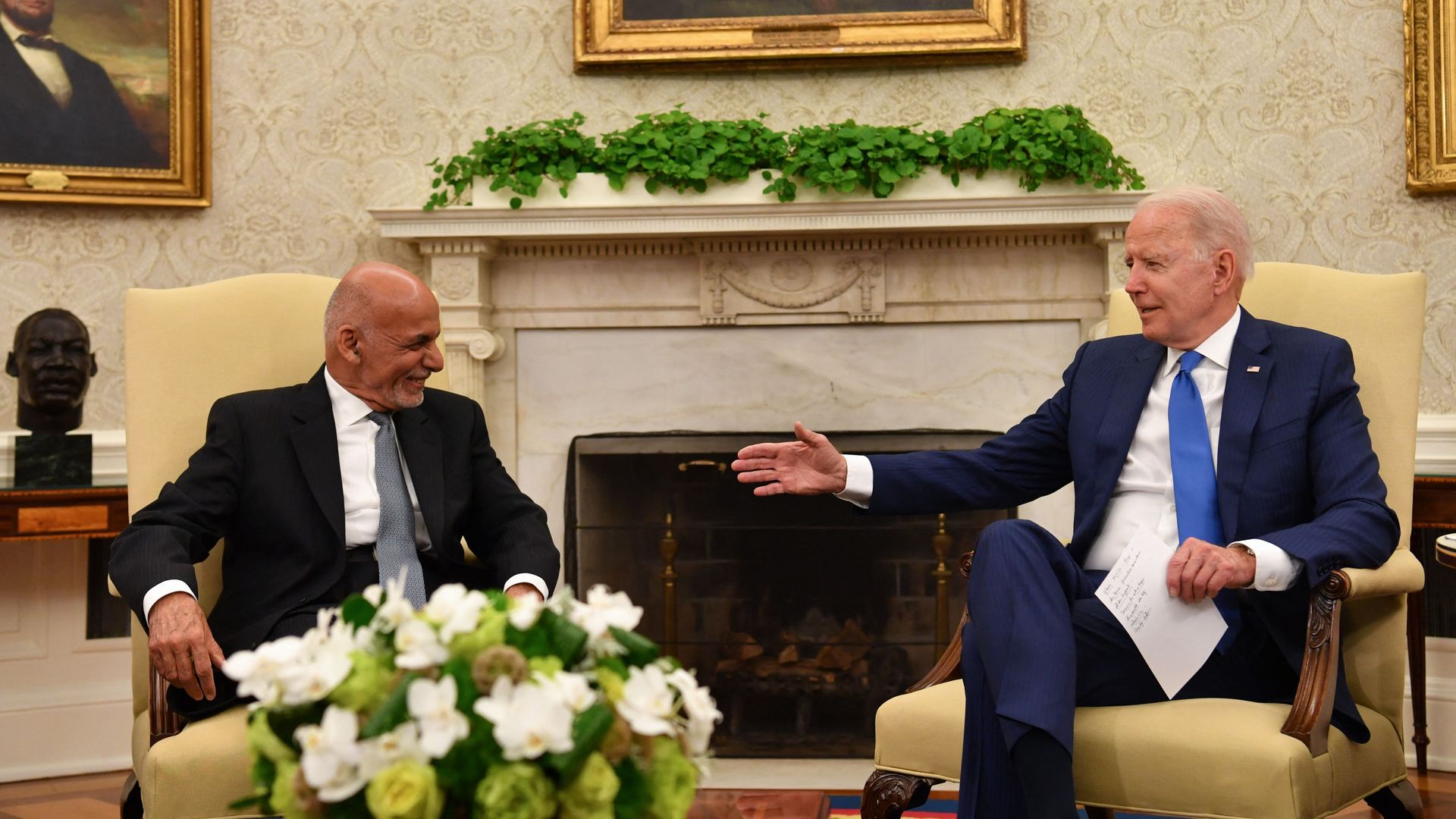Jun 25, 2021 - Politics & Policy
Biden promises Ghani "sustained" partnership with Afghanistan
Add Axios as your preferred source to
see more of our stories on Google.

President of Afghanistan Ashraf Ghani meets with President Biden on June 25. Photo: NICHOLAS KAMM/AFP via Getty Images
